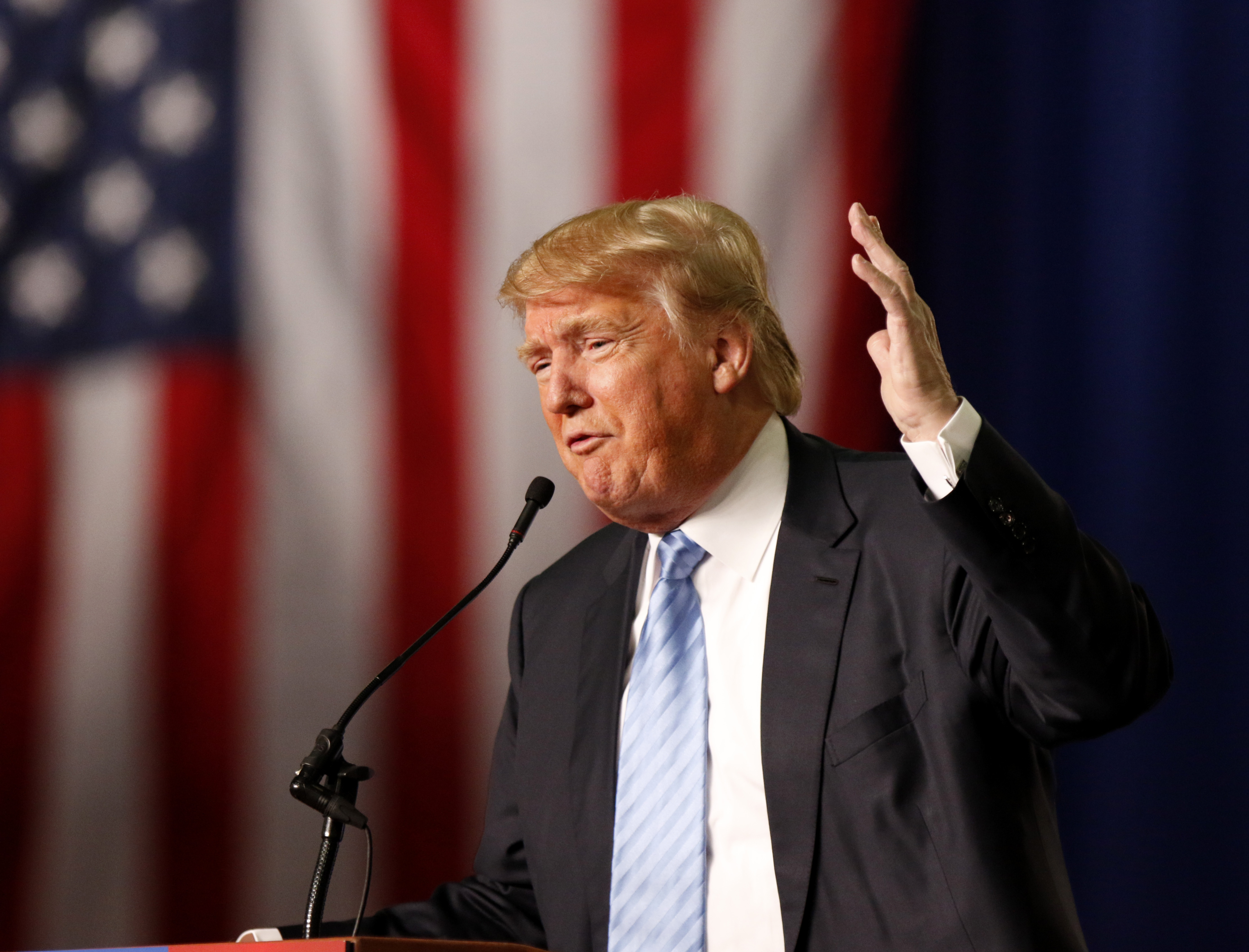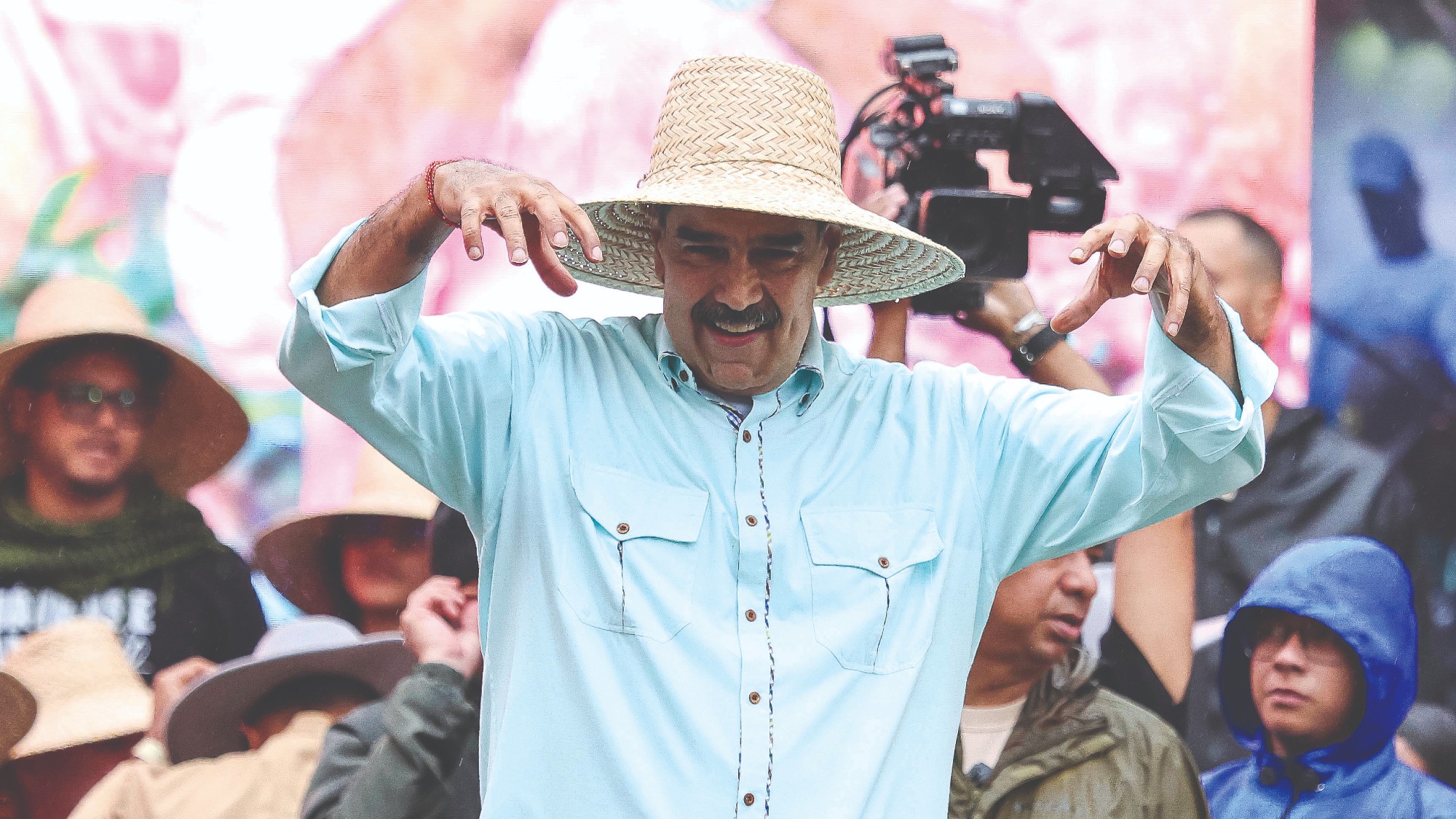Donald Trump and a nation on the verge of a nervous breakdown
The frontrunner for the GOP presidential nomination wants to bar all Muslims from entering this country. Has the paranoid style in American politics ever been worse?


How will the liberal democracies of the West — and the liberal democracy of the United States in particular — respond to the stresses and strains of life in an interconnected world that's continually buffeted by unpredictable, and perhaps unpreventable, acts of spectacular violence?
The truth is we have no idea.
Our form of government was devised at a time when news of a looming military threat had to be carried on galloping horseback to the governing authorities. Politics for most people in the founding era meant local politics, with the federal government more of a distant rumor than a reality perceived directly. Events, even important ones, often remained local, too. Only the most dramatic would penetrate the nascent national consciousness — and then only days or weeks later, mixed with gossip and half-truths from an unimaginably faraway land inhabited by people who felt more like foreigners than fellow citizens of a single continent-wide nation.
The Week
Escape your echo chamber. Get the facts behind the news, plus analysis from multiple perspectives.

Sign up for The Week's Free Newsletters
From our morning news briefing to a weekly Good News Newsletter, get the best of The Week delivered directly to your inbox.
From our morning news briefing to a weekly Good News Newsletter, get the best of The Week delivered directly to your inbox.
And yet even then — at a time before telegraphs and telephones, radios and TVs, computers and social media — observers noticed that Americans were prone to anxiety. As the country became far more interconnected during the mid-20th century, others detected a recurring "paranoid style in American politics."
That's nothing compared to the post-9/11 world.
In the age of the 24/7 news cycle — with mainstream media outlets elevating every bad event anywhere in the country and the world into a sign of crisis; with partisan cable TV stations, talk radio programs, and niche websites shamelessly driving up their ratings and traffic by provoking each other into a state of endless outrage; with social media platforms amplifying and rewarding with maximum exposure the most extreme, cutting, and often ignorant opinions; and with most Americans walking around with powerful networked computers in our pockets bringing us this bad news and polarized opinion in a ceaseless flood — all of it is enflaming our national predisposition to anxious panic in ways we've never seen.
No wonder we increasingly seem like a nation on the verge of a nervous breakdown.
A free daily email with the biggest news stories of the day – and the best features from TheWeek.com
Republican politicians and their ideological taskmasters in the right-wing media figured out before anyone else how to use the new telecommunications technologies to whip up their voters into a froth of ideological fury. GOP presidential candidates and House members have been playing the demagogue game for years, and it's reached an apotheosis of sorts with this year's race. Nearly all of the candidates do it on foreign policy and ObamaCare, Ted Cruz does it on everything, and Donald Trump does it on everything far better than anyone else. Witness his breathtaking fascist call on Monday for a "complete shutdown" of all Muslims entering the United States.
Until we are able to determine and understand this problem and the dangerous threat it poses, our country cannot be the victims of horrendous attacks by people that believe only in Jihad, and have no sense of reason or respect for human life. [Trump]
As The New York Times recently noted, Trump is a master of demagogic rhetoric, stoking and manipulating fear while issuing sweeping but always studiously vague promises about how he and he alone is smart and tough enough to keep the country safe and fix its mountain of problems. "Something bad is happening," "Something really dangerous is going on": Trump uses such ominous, open-ended language to talk about a range of threats: Mexican immigrants, Muslim terrorists at home and abroad, and legions of stupid people from both parties whose incompetence has supposedly led the country and its economy to the verge of collapse.
The Trump campaign is the culmination of three decades of Republicans bad-mouthing Washington. One almost wonders why it took so long for someone to come along and close the populist circle: If Washington really is so unredeemably bad, then the Republican establishment deserves just as much scorn as the Democrats — because everyone, in both parties, is a worthless fool. Since the rise of the Tea Party, the GOP power brokers have tried to ride the anti-establishment tiger, but Trump has finally succeeded where they failed. "Vote for me," he says, "and I'll fulfill your fantasies of throwing all the bums out and fixing things from top to bottom."
Not a single vote has been cast for Trump, of course. We don't know yet if his support in the polls will translate into primary victories, let alone into his nomination as the GOP candidate, let alone into him winning the presidency. Yet clearly, millions of Americans like what they're hearing from Trump — and, increasingly, from his Mini-Me, Ted Cruz. That's remarkable.
But it's not just conservative America that seems on the verge of a nervous breakdown. Liberals are right there, too.
The left has become more unhinged with each mass shooting, with their (understandable) outrage curdling into intemperate talk of repealing the 2nd Amendment, fantasies of widespread gun confiscation and prohibition, and insulting attacks on fellow citizens who are inclined to respond to tragic news by offering prayers. All of this is counter-productive, confirming the suspicions of tens of millions of gun owners that liberals can't be trusted to pursue moderate, reasonable gun control measures.
Then there's the distinctively left-wing madness sweeping American college campuses, with young people at a growing list of elite universities demanding, among other things, that they be protected from having their (very delicate) feelings hurt. As far as many of them are concerned, free speech and the free exchange of ideas are luxuries we can no longer afford.
To these illiberal demands, college administrators almost unfailingly respond with complete capitulation, showing that the defense of liberal norms and ideals is less important to them than sparing their institutions potentially embarrassing publicity (which, thanks to social media, can go viral and national in an instant).
Finally, there's the distinctive contribution of our well-meaning but frequently ineffective liberal president to our national neuroses. At another historical moment, Obama's cool-cat persona might have fit right in. But his temperamental aloofness and tendency to undersell threats are almost comically ill-suited to this moment of turmoil and angst. Whereas the rest of the country stands continually on the edge of a panic attack, our president alone seems unwaveringly certain that we have nothing at all to worry about — even right up to and just after the latest traumatic event.
We don't need, and shouldn't hope for, a president who will actively encourage and manipulate our worst fears. But in times of national anxiety, the country needs a leader who will acknowledge and validate those fears. Only then can he hope to moderate and dissipate them, and channel them in more publicly beneficial directions. Instead we're left with an image of presidential fecklessness — and the impression that no one is really in charge of an increasingly chaotic nation in an ever more anarchic world. (Obama's prime-time Oval Office address to the nation on Sunday night was a tentative but rather feeble step in the right direction. More, please.)
We live in troubling times. Global order is being tested in new ways nearly every day, as is America's mythical vision of itself as a haven from the tumult and troubles of the outside world. Technology both contributes to the disorder and makes the pandemonium seem worse than it really is by shoving it down our throats all day, every day, while our leaders (and would-be leaders) act in ways that exacerbate our worries.
Amidst all of that, a measure of anxiety is understandable.
But we desperately need to get a grip — and some philosophical and historical perspective on the nation's problems and the nature of the threats it faces. Achieving a measure of equanimity in a time of trial is always difficult. Attaining it when reason and good sense are continually drowned out by ceaseless electronic chatter is more challenging still.
Yet that is precisely what we need.
The time has come for a intervention — and we have no choice but to administer it to ourselves.
Damon Linker is a senior correspondent at TheWeek.com. He is also a former contributing editor at The New Republic and the author of The Theocons and The Religious Test.
-
 The launch of the world’s first weight-loss pill
The launch of the world’s first weight-loss pillSpeed Read Novo Nordisk and Eli Lilly have been racing to release the first GLP-1 pill
-
 Six sensational hotels to discover in 2026
Six sensational hotels to discover in 2026The Week Recommends From a rainforest lodge to a fashionable address in Manhattan – here are six hotels that travel journalists recommend for this year
-
 Maduro’s capture: two hours that shook the world
Maduro’s capture: two hours that shook the worldTalking Point Evoking memories of the US assault on Panama in 1989, the manoeuvre is being described as the fastest regime change in history
-
 The billionaires’ wealth tax: a catastrophe for California?
The billionaires’ wealth tax: a catastrophe for California?Talking Point Peter Thiel and Larry Page preparing to change state residency
-
 Bari Weiss’ ‘60 Minutes’ scandal is about more than one report
Bari Weiss’ ‘60 Minutes’ scandal is about more than one reportIN THE SPOTLIGHT By blocking an approved segment on a controversial prison holding US deportees in El Salvador, the editor-in-chief of CBS News has become the main story
-
 Has Zohran Mamdani shown the Democrats how to win again?
Has Zohran Mamdani shown the Democrats how to win again?Today’s Big Question New York City mayoral election touted as victory for left-wing populists but moderate centrist wins elsewhere present more complex path for Democratic Party
-
 Millions turn out for anti-Trump ‘No Kings’ rallies
Millions turn out for anti-Trump ‘No Kings’ ralliesSpeed Read An estimated 7 million people participated, 2 million more than at the first ‘No Kings’ protest in June
-
 Ghislaine Maxwell: angling for a Trump pardon
Ghislaine Maxwell: angling for a Trump pardonTalking Point Convicted sex trafficker's testimony could shed new light on president's links to Jeffrey Epstein
-
 The last words and final moments of 40 presidents
The last words and final moments of 40 presidentsThe Explainer Some are eloquent quotes worthy of the holders of the highest office in the nation, and others... aren't
-
 The JFK files: the truth at last?
The JFK files: the truth at last?In The Spotlight More than 64,000 previously classified documents relating the 1963 assassination of John F. Kennedy have been released by the Trump administration
-
 'Seriously, not literally': how should the world take Donald Trump?
'Seriously, not literally': how should the world take Donald Trump?Today's big question White House rhetoric and reality look likely to become increasingly blurred
